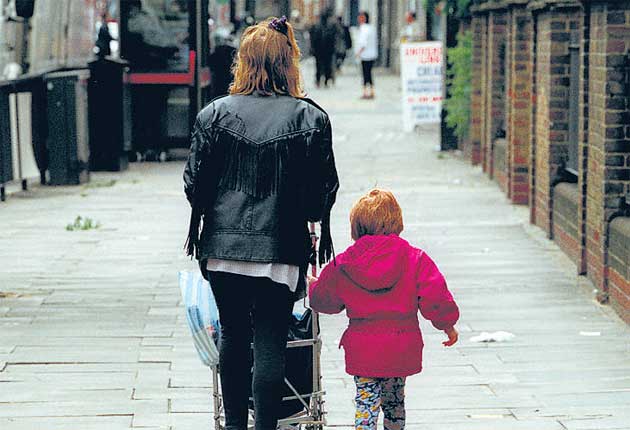Millennial financial focus masks wider money worries
Figures show we need to stop focusing on a single generation as other bubbles of financial stress are forgotten

Your support helps us to tell the story
From reproductive rights to climate change to Big Tech, The Independent is on the ground when the story is developing. Whether it's investigating the financials of Elon Musk's pro-Trump PAC or producing our latest documentary, 'The A Word', which shines a light on the American women fighting for reproductive rights, we know how important it is to parse out the facts from the messaging.
At such a critical moment in US history, we need reporters on the ground. Your donation allows us to keep sending journalists to speak to both sides of the story.
The Independent is trusted by Americans across the entire political spectrum. And unlike many other quality news outlets, we choose not to lock Americans out of our reporting and analysis with paywalls. We believe quality journalism should be available to everyone, paid for by those who can afford it.
Your support makes all the difference.It’s easy to see debt and financial worries as a generational issue. Millennials are often singled out as the unlucky generation – hit by a multitude of factors including university fees, high rents and high house prices.
But here’s a growing core of people of every age group who are facing real financial hardship. People struggling is not a new phenomenon, of course. There have been poor people of every age as long as society has existed.
It is undeniable that people under 40, those born between 1981 and 1996, are finding finances hard.
New data from NatWest, given exclusively to The Independent, shows that millennials face particular financial difficulties.
Almost one in five say money worries have affected their relationship with their partner. More than one in 10 say they feel too ashamed or guilty to look at their bank balance, while a third feel under pressure to spend money on expensive holidays.
Their wellbeing suffers as a result, with 44 per cent admitting their mental health is hurt by money worries, meaning they are more than twice as likely to suffer compared to the baby boomer generation.
But they are not the only generation to find themselves in difficulties.
Older women (and women in general)
The latest data from the government’s Insolvency Service shows there’s been a considerable spike in the number of insolvencies among women aged 65 and over.
Analysis of the numbers carried out by the over-50s jobsite Rest Less revealed that in 2008 there were 1,109 women who were over 65 and in insolvency. By 2018 that had almost doubled to 2,082.
Insolvencies among men did not increase to the same extent, although there was a 29 per cent jump in insolvencies among men over 65.
This suggests not only an age concern but also a gender concern. Across all age groups the overall insolvency rate of women has rapidly overtaken the rate amongst men between 2008 and 2018.
And that is a big change. In 2008 the male insolvency rate was 56 per cent higher than that of women. By 2018 this had completely reversed and now the female rate of insolvency is 14 per cent higher than that of men.
Stuart Lewis, founder of Rest Less, says the figures all point to significant underlying issues but he is particularly concerned amongst women over 55, “many of whom are already at higher risk of finding themselves in a financially precarious position: the over 55s are more likely to be made redundant, to be in long-term unemployment and to face age discrimination in the recruitment process when applying for jobs.
“Women in their 50s and 60s are also more likely to have taken time out of the workplace and to have caring responsibilities, whether for elder relatives, partners or grandchildren.
“Add to this, the wide gulf in private pension savings between men and women – due to 40 years of a historical gender pay gap – and it’s no surprise to see why insolvencies amongst women over 65 are rising faster than other groups.”
The north
The government may have plans to “level up” the north but those plans will take time to come to fruition. Meanwhile, a recent study from the Joseph Rowntree Foundation showed that the north of England faces particular struggles when it comes to securing and keeping paid work.
It showed that around 31 per cent of working-age adults in the northeast were not in paid work, which was the highest percentage in the UK. That was followed by the northwest, where 27 per cent of working-age adults were out of work.
“Weak local economies in some parts of the UK have led to higher unemployment than in the UK as a whole. This needs to change to maintain progress,” concluded the report.
Single parents
Across the UK single parents face a particularly high risk of poverty compared to other households.
One study carried out in 2018 by the single parent support organisation Gingerbread found that in that year almost half of children in single parent families lived in poverty, compared to just a quarter of those in couple families.
That figure was predicted to rise to two-thirds by 2021.
There are around 1.8m single parents in the UK and around 90 per cent of them are women. It isn’t just the financial struggles they face now, many find it hard to save for emergencies or into a pension, risking lifelong poverty even after the children leave home.
Join our commenting forum
Join thought-provoking conversations, follow other Independent readers and see their replies
Comments